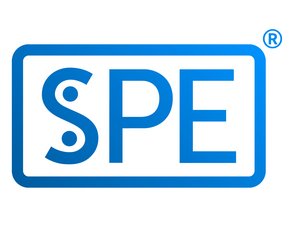Single Pair Ethernet

Single Pair Ethernet: the cornerstone for the Smart Factory
SPE replaces conventional fieldbuses
The classic Ethernet, which already connects all upper layers in the automation pyramid, is unsuitable for connecting the lowest field level. The cables are complex to connect and oversized. Companies therefore still rely on conventional field buses, which regulate the exchange of information between the sensor and actuators with the control level (PLC). However, these BUS systems no longer meet the extensive requirements of a smart factory. This is why they are now being replaced by Single Pair Ethernet and the associated cables.

Advantages of Single Pair Ethernet
- Replacing fieldbuses for a future-proof smart factory
- Standardisation of technology in IP-based networks, from sensor to ERP and the cloud
- Material, weight and cost savings, significantly less space required
- Single-paired cable design for fast, easy installation and fewer errors during assembly
- Cost effectiveness through the elimination of gateways as "translators"
- Power-over-Data-Line for supplying terminal devices with up to 50 watts
- Open standard with compatible cabling components for universal use in the entire automation industry
What's next with SPE?
Standards ensure a quick entry into practice:
- The protocol standards according to IEEE 802.3 define the technical framework conditions for Single Pair Ethernet data transmissions in industrial applications.
- The industrial connector face "T1 Industrial Style" is standardised by IEC 63171-6.
The working group IEEE 802.3 has defined standards for different SPE applications.
| SPE standard | Bit rate | Cable length point to point | Cable length point to pint |
|---|---|---|---|
| shielded | unshielded | ||
| IEEE 802.3ch | 2,5/5,10 Gbit/s | 15 m | - |
| IEEE 802.3bp | 1 Gbit/s | 40 m | 15 m |
| IEEE 802.3bw | 100 Mbit/s | 40 m | 15 m |
| IEEE 802.3cg | 10 Mbit/s | 1000 m and more | - |

LAPP is a member of the SPE Industrial Partner Network, a consortium of well-known companies that want to help SPE technology break through together.
The network of partners aims to create an integrated SPE infrastructure. The innovative technology should not only guarantee reliable data transmissions, but also provide standardised interfaces and system components. The foundation for this has already been laid by defining standards and working closely with international standards committees.
Ethernet Advanced Physical Layer: SPE for the process industry
Ethernet APL is the booster for networking at field level – especially for the process industry. Single Pair Ethernet with its consistent networking using one protocol is used as the basis. Ethernet APL extends this to include intrinsic safety for areas at risk of explosion with all the benefits of SPE.
LAPP offers an extensive portfolio for setting up Ethernet APL networks
The portfolio of SPE/Ethernet-APL products from LAPP
| Part number | Articlename |
|---|---|
2170920
| ETHERLINE T1 FD P 1x2x26/19AWG |
2170922
| ETHERLINE T1 PN FLEX T Y 1x2x22/7AWG |
2170924
| ETHERLINE T1 PN FLEX Y 1x2x22/7AWG |
2170925
| ETHERLINE T1 FLEX Y 1x2x26/7AWG |
21700867
| EPIC DATA SPE-6 PC M-M 0,3m CT001 |
2170918
| ETHERLINE T1L FC Y 1x2x18/1AWG |
2170919
| ETHERLINE T1L FLEX FC Y 1x2x18/7AWG |
21700865
| EPIC DATA SPE-6 FA M CS1 |
21700866
| EPIC DATA SPE-6 PCB F |
